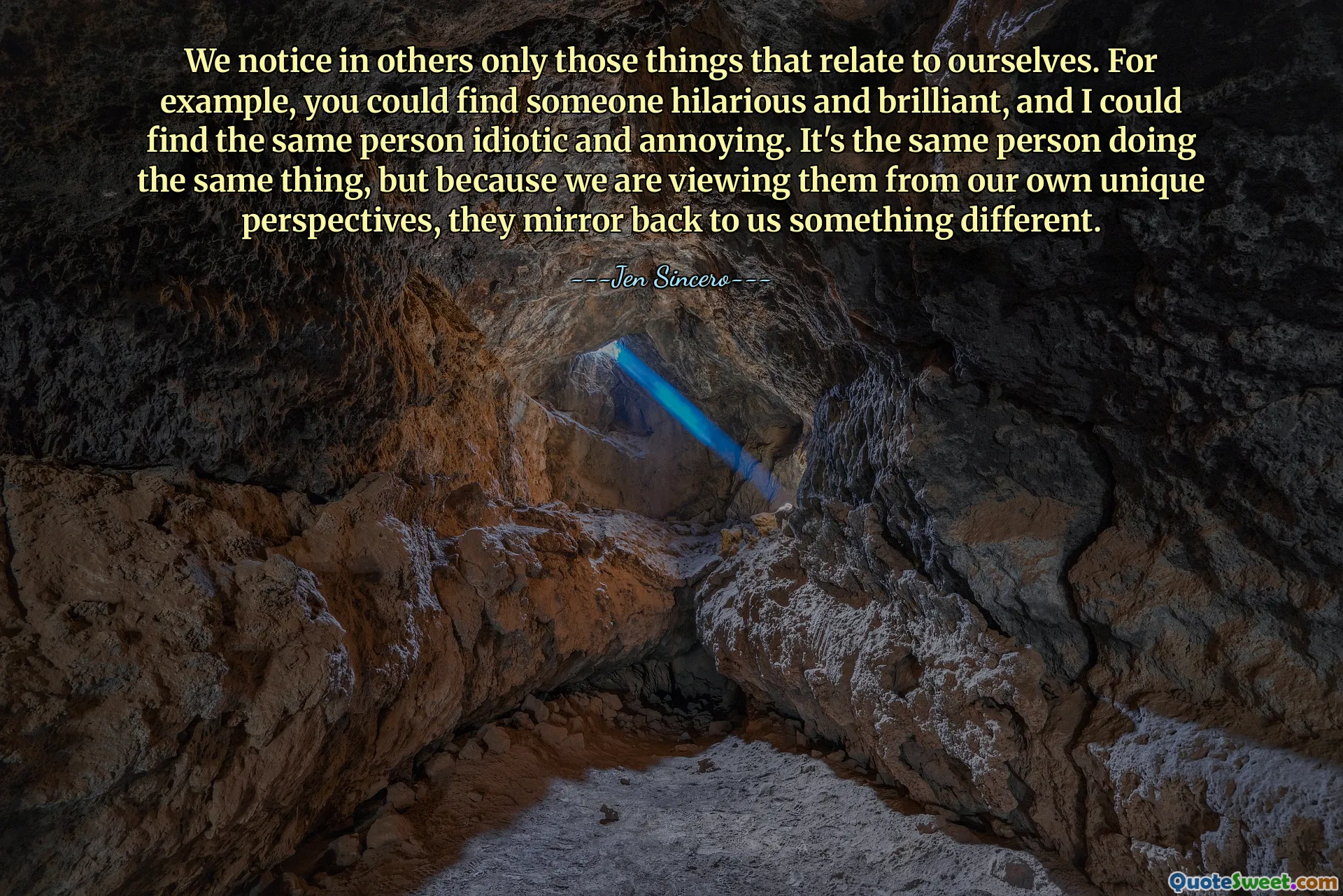
We notice in others only those things that relate to ourselves. For example, you could find someone hilarious and brilliant, and I could find the same person idiotic and annoying. It's the same person doing the same thing, but because we are viewing them from our own unique perspectives, they mirror back to us something different.
This quote highlights the deeply subjective nature of perception and how our personal experiences, beliefs, and emotions shape the way we interpret others' actions and characteristics. It emphasizes that our judgments are often reflections of our internal states rather than objective truths about the other person. When we see someone as hilarious or brilliant, it may connect with qualities we admire or wish to embody, fostering feelings of inspiration and joy. Conversely, perceiving the same individual as idiotic or annoying might reveal insecurities, frustrations, or biases within ourselves that color our judgments negatively.
Understanding this dynamic invites us to develop greater self-awareness and humility. Recognizing that our perceptions are inherently biased enables us to approach others with more compassion and openness, reducing misunderstandings and conflicts. It underscores that our reactions are not just about others but also about our inner world—our vulnerabilities, experiences, and values. By exploring those reflections, we can gain deeper insight into ourselves, leading to personal growth and improved relationships.
Moreover, this awareness fosters empathy, as we accept that differing perspectives are natural and rooted in individual histories. Accepting that someone else's perception of a person or situation differs from ours doesn't mean dismissing our judgment but understanding its origin. This awareness can help us cultivate patience, reduce assumptions, and foster a more harmonious interaction with the world around us.











